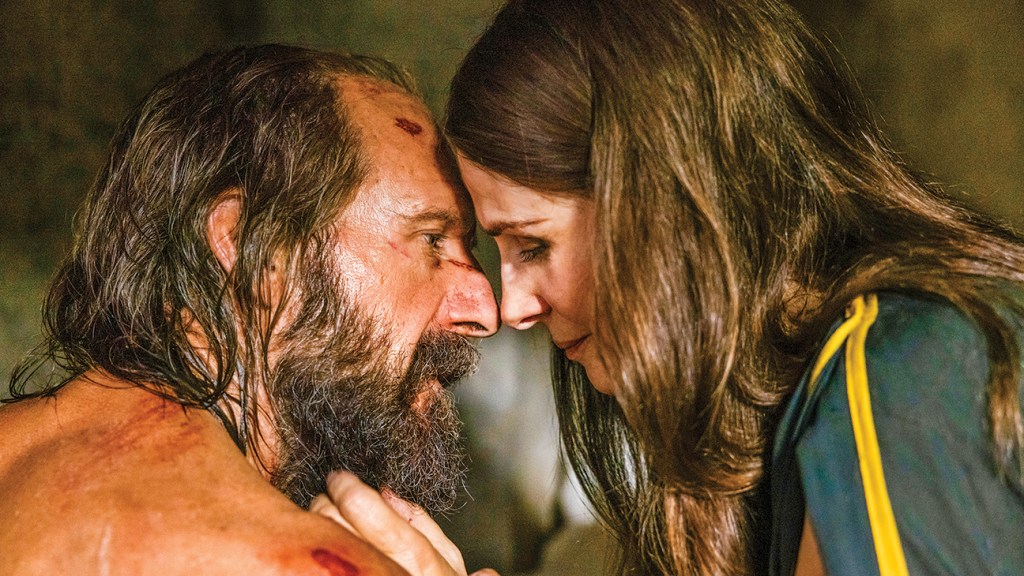
RALPH FIENNES AND JULIETTE BINOCHE ON REUNITING 28 YEARS AFTER ‘THE ENGLISH PATIENT'
It's been nearly 30 years since Juliette Binoche peeled a plum and slipped it into Ralph Fiennes' mouth.
That's the first scene between the actors in The English Patient (1996), with Binoche playing Hana, the nurse to Fiennes' titular character, a severely burned and bedridden patient with a mysterious past. The rest, of course, is history. Anthony Minghella's literary epic became a cinematic phenomenon, earning $232 million worldwide - still the highest-grossing film in the history of Miramax - and dominated the 1997 Academy Awards, taking nine Oscars, including those for best film and for Binoche, best supporting actress. Seinfeld even did an episode about the movie.
Now, Binoche and Fiennes have finally reunited onscreen in The Return, which has its world premiere on Sunday, Sept. 8 at the Toronto Film Festival (Bleecker Street is releasing across North America on Dec. 6, with HanWay Films selling the movie worldwide). Directed by Uberto Pasolini (Still Life, Nowhere Special), the film is a retelling of Homer's Odyssey, or more accurately the end of the epic, when Odysseus (Fiennes), after 20 years away at war, washes up on the shores of Ithaca, his old kingdom. His wife, Penelope (Binoche), is a prisoner in her own home, fighting off suitors who want to marry her and become king. When Odysseus returns, he's driven to reclaim his crown and take his revenge. Their son, Telemachus (played by Charlie Plummer of Lean on Pete), is caught in the middle, under threat from the suitors who would rather see him dead and desperate to prove himself worthy of his father's "heroic" legacy. As anyone familiar with classical Greek myth knows, things are going to end badly.
"We remained friends, throughout all those years, since The English Patient," says Binoche, speaking via a joint Zoom with Fiennes ahead of TIFF. "So it was just joyful to be able to reconnect onscreen. Ralph is not lying down this time, but I think Penelope is a kind of nurse, for being so patient of this ‘new patient' who comes back to Ithaca."
They weren't looking for a project to do together, says Fiennes - "friendship isn't always about working together. It's about talking together, sharing a meal together" - but when the opportunity came for him to play Odysseus opposite Binoche's Penelope, "well it was, as you Americans say, a no-brainer. Juliette is like a compass for me, she has such an extraordinary, intuitive depth and understanding about what it is to act on film."
In style and intent, The Return is a million miles from The English Patient. Instead of a sumptuous romantic epic, the film is pared back and raw. Fiennes spends most of the film in a glorified loincloth; Penelope's palace has seen better days. Pasolini takes direct inspiration from the late, legendary Italian auteur Pier Paolo Pasolini (no relation), who removed all the ornament and finery from his classic adaptations of Medea and Oedipus to better focus on the emotions and psychology of his characters.
"This isn't a Hollywood sword-and-sandals film, there is an austerity to it," says Fiennes, "and there are no gods, no monsters. Our Odysseus is a lost soul, a man bruised and scarred, psychologically scarred, by war, who returns home indecisive and unsure of whether he should reclaim his kingdom and take his revenge [on his wife's suitors]."
The rawness of The Return extends to Fiennes' physique. The 61-year-old Englishman went through a grueling regimen of diet, running and weight training to carve out a muscular, wiry frame for Odysseus.
"We were aiming for a sort of sinewy look, of someone who has spent their life rowing, swimming and sailing and not eating a lot," says Fiennes. "Uberto was very anxious that I shouldn't look like someone who's been to the gym. And, frankly, at my age, I'm not going to put on a lot of muscle anyway. I put myself in the hands of this wonderful man, my trainer, and just surrendered to his will. What I learned is the key is a very strict diet. If you follow that, you shed unwanted flesh."
Binoche, 60, didn't need to transform physically to play Penelope. But unlike most versions of this story, which depict her as a selfless sacrificer, standing by her man for 20 years like a Greek Tammy Wynette, the French actress has given her queen a spine. And plenty of bite.
"I almost want to say [she's a] feminist, but I don't like that word because it puts it into a box and it's not right for the story and the time," says Binoche. "But what Uberto really did want to emphasize was the anger and frustration inside Penelope and her complicated relationship to Odysseus when he returns."
Pasolini keeps Odysseus and Penelope, Fiennes and Binoche, apart for most of the film. They don't come together onscreen until the final act, sharing the frame for the first time in 28 years. It's worth the wait.
This story first appeared in the Sept. 4 issue of The Hollywood Reporter magazine. Click here to subscribe.